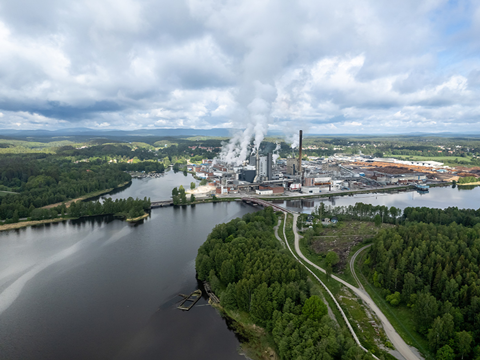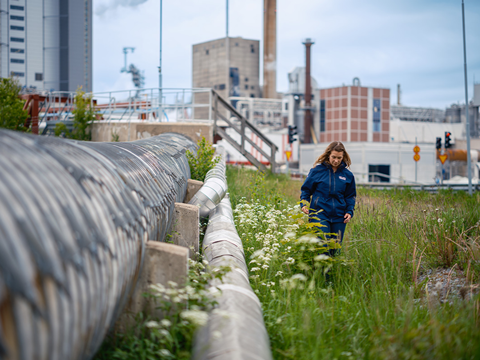
Holmen’s operations already benefit the climate today through forest carbon uptake in growing forests, products that can replace fossil-based products and generating renewable energy from water and wind. Despite this, the work continues to minimise the very low fossil emissions that remain at Holmen’s mill in Iggesund.
In the latest edition of the Spotlight, we hear from Holmen about its efforts to cut CO2 emissions by 25% at its Iggesund mill.
Holmen’s mill in Iggesund, Sweden, home of the premium paperboard Invercote, places great emphasis on sustainability and reducing its climate impact. Over the years, it has delivered on this through steady improvements. Last year alone, the mill reduced its direct fossil CO2 emissions (from 2022 to 2023) by almost 25 percent - and this was achieved without any major investments.
What mainly contributed to the nearly 4,000-tonne reduction in emissions was a new approach to running the boiler with a short start-up time. “When we start up a boiler, we use fossil oil, which has a higher energy density than biofuel. We then quickly switch over to biofuels. Last year, we focused on shortening this timespan for oil usage,” explains Anna Nordin Mårtensson, sustainability director, Holmen Board and Paper.
“We have become faster,” she adds. “We follow up deviations quicker, and engineers, production personnel, and others work more closely together. Our employees are very interested in sustainability, so this comes naturally for us.”
Holmen’s mill in Iggesund runs on over 98.5 per cent biofuel today, but efforts will continue to reach the final 1.5 percent. “We continuously work on improving our sustainability by systemically using energy more effectively,” says Mårtensson.
“We have reduced our total amount of electricity by investing in and using smarter and more efficient equipment, and we work a lot to increase the use of renewable energy and utilising residual heat. Our excess residual heat goes towards heating 1,000 households here in Iggesund.”

Sustainability efforts are not new to the company, she adds. “This is a development that has been ongoing at our mill since the 1970s, starting already during the oil crisis when we began looking at ways to reduce our oil usage, and it has continued ever since.
“Of course, at the time, it was more for economic reasons, but I want to point out that what we’re doing today is a good example of how economics and sustainability no longer need to be in conflict. It’s cheaper to burn biofuel than oil.”
Being based in Sweden is definitely advantageous when it comes to access to fossil fuel-free energy sources such as bioenergy and water for electricity, she adds. “Compare us to an average Scandinavian mill, and we have a very good carbon footprint, which we track according to the Greenhouse Gas Protocol. Our customers highly value this and have come to expect of us.”
The ultimate goal? “Our ambition is to continue increasing our climate benefit and to become a fossil-fuel-free mill eventually,” says Mårtensson.
Learn more about Holmen Board and Paper at our site, or follow us on LinkedIn.
This content was sponsored by Holmen.









